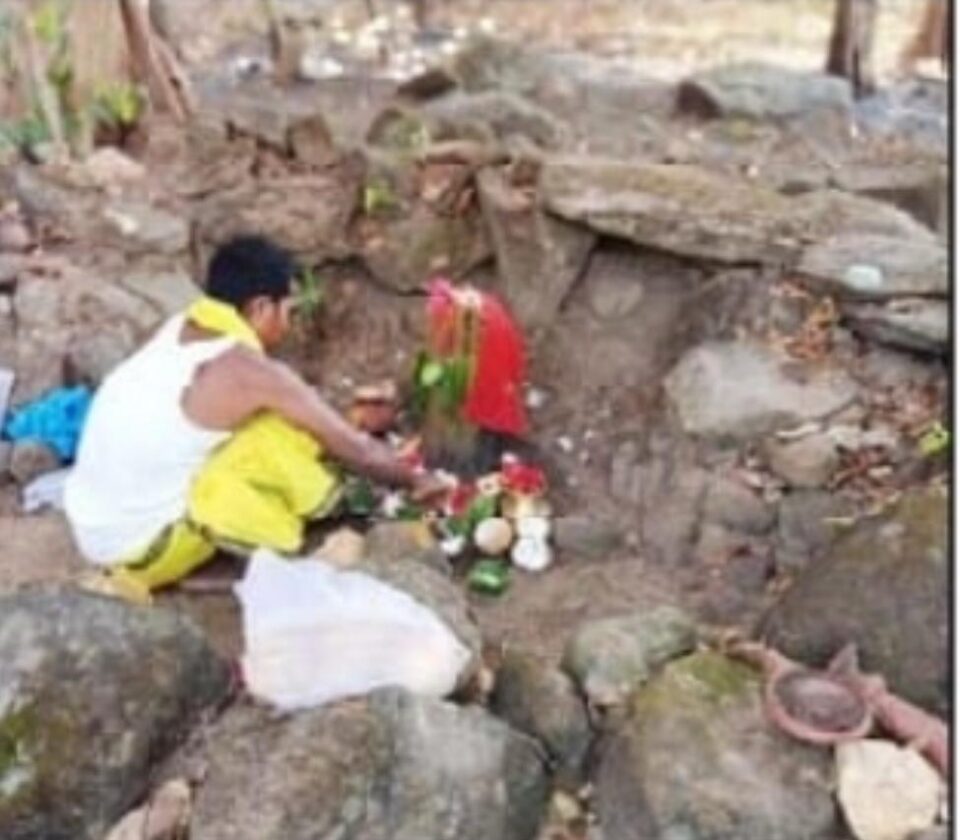Chaiti Parva Festival Celebrates Tribal Heritage in Khairput
Malkangiri
Khairput Malkangiri, Odisha – The vibrant seven-day Chaiti Parva, a centuries-old festival honoring agricultural traditions and tribal heritage, has commenced across villages in Khairput block, Malkangiri district. Rooted in gratitude to nature and deities for prosperity, the festival unites communities of all ages and castes in rituals, feasts, and cultural performances.
The festivities began with Bangalani, marked by the worship of Mother Mauni to seek forgiveness for past sins. Villagers sacrificed multicolored chickens and eggs, accompanied by rhythmic beats of the dhol and mehuri. Young boys, adorned in traditional attire and wielding leafy branches, danced to welcome the deity, while village leaders inaugurated the celebrations at a temporary vihara (shrine) erected at the village outskirts.
On the second day, Newt, households offered freshly harvested rice, beans, and moong to the village goddess in ceremonial hundis (containers). By the third day, these grains were redistributed by the village headman, symbolizing shared blessings for the upcoming sowing season. Families then celebrated Nua Khai, consuming the first ripe mangoes and sacrificial goat meat amid spirited singing and dancing.
The fourth day, Tingri Chent, saw teenage boys embark on a symbolic hunt in nearby forests, returning with small game to display in flower-adorned baskets. While modern conservation efforts have curtailed prolonged hunting expeditions, the ritual persists as a cultural nod to ancestral practices.
Days five and six centered on Mahabent, where men worshipped weapons like bows and spears, seeking success in endeavors.
Women adorned them with flowers, while playful taunts—symbolized by cow dung—highlighted communal camaraderie.
The festival culminated on the seventh day with women staging theatrical abductions and marriages, followed by traditional Demesa dances.
As celebrations concluded, villagers resumed daily life, adhering to a district-wide custom of halting work for the festival’s duration. Youth and women playfully imposed token fines on those attempting to work, with proceeds funding communal feasts.
Despite modernization, Chaiti Parva remains a testament to the Malyavant region’s cultural resilience.
“The festival binds us to our roots,” remarked a village elder, as drumbeats and dances echoed through the night, reaffirming the community’s enduring connection to land and tradition.
The district now returns to routine, carrying forward the hope that Chaiti’s blessings will nurture a fruitful year ahead.

